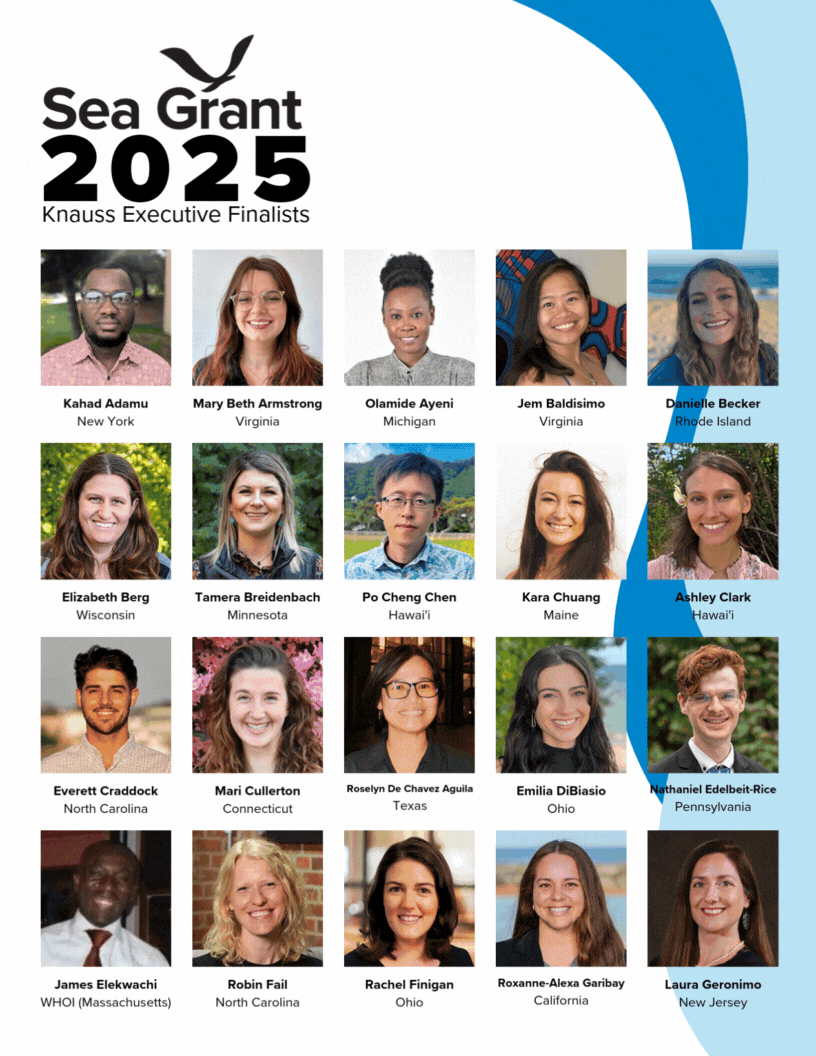The National Sea Grant College Act was reauthorized and amended by Congress and signed by President Donald J. Trump on December 18, 2020. The reauthorization, titled the “National Sea Grant College Program Amendments Act of 2020,” includes several updates to Sea Grant’s authorizing legislation. The Act serves as a guiding framework upon which Sea Grant operates and serves America’s coastal and Great Lakes communities.
“This Sea Grant Reauthorization is a tremendous milestone for NOAA and our ability to serve America’s oceans, coasts, and Great Lakes. Sea Grant’s reauthorization legislation ensures NOAA’s continued leadership in marine STEM fields, creates extraordinary opportunities and benefits in science, and strengthens America’s Blue Economy. Furthermore, it will enable NOAA to recruit and retain top notch science professionals through the John A. Knauss Marine Policy Fellowship program, which will help us build a strong workforce in an expeditious manner,” said retired Navy Rear Adm. Tim Gallaudet., Ph.D., assistant secretary of commerce for oceans and atmosphere and deputy NOAA administrator. “I would like to thank Senator Wicker and Senator Schatz for championing this legislation.”
Notable updates in Sea Grant’s reauthorization include the following: 1) direct hire opportunities for Knauss fellows by participating federal agencies following their fellowship year (direct hire eligibility lasts for up to two years following the fellowship), 2) a change in the frequency of the National Sea Grant Advisory Board’s report to Congress from biennial to periodic and at least every four years, 3) updated authorization of appropriations levels, 4) affirmation of several key topical areas of Sea Grant’s work, including language on strengthening the requirement for Sea Grant to support a program of fellowships, and 5) an increase in the administrative allowance from 5 to 5.5% of the total federal appropriations.
“For over 50 years, Sea Grant has worked to further NOAA’s mission by engaging the expertise of university-based researchers to address the needs of coastal and Great Lakes communities and ensure a sustainable economy and environment,” said Jonathan Pennock, director of NOAA’s National Sea Grant Program. “This reauthorization affirms Sea Grant’s approach in providing science to benefit society, provides new opportunities for early career professionals, and enriches the opportunities we have to support the communities and citizens Sea Grant serves.”
Programs that are legislatively authorized, such as Sea Grant, periodically receive reauthorization by Congress. Reauthorization is the process by which Congress makes changes, deletions and additions to authorizing legislation. Sea Grant was first authorized by the National Sea Grant College Act of 1966. Subsequent reauthorizations have amended the program over its 54 year history, including the establishment and continuation of Sea Grant’s flagship workforce development program, the Knauss Marine Policy Fellowship Program.
Sea Grant is a national network of 34 university-based programs with a mission of enhancing the practical use and conservation of coastal, marine and Great Lakes resources in order to create a sustainable economy and environment. In 2019, a federal investment of $80 million in Sea Grant resulted in 10,404 jobs created or sustained, $412.4 million in economic benefit, and 1,982 undergraduate and graduate students supported.
This story is also posted on OAR Research’s website.


